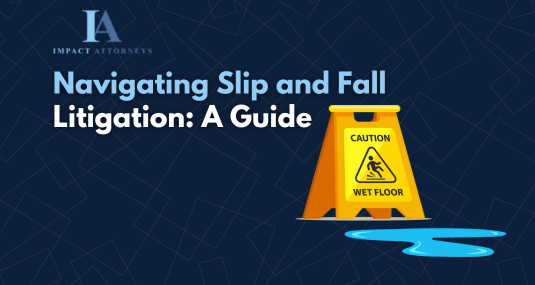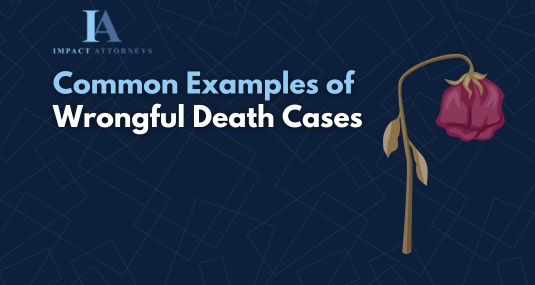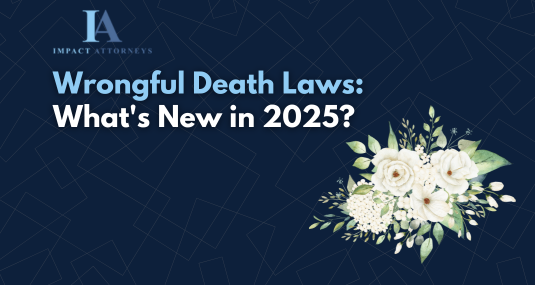Los Angeles wrongful death law are changing rapidly in 2025. New legislation, technological advancements, and emerging trends are reshaping how these cases are handled.
At Impact Attorneys, we’re committed to keeping you informed about these crucial updates. This post explores the latest developments in wrongful death laws and their implications for victims’ families.
What’s New in Wrongful Death Laws?
Los Angeles wrongful death law continue to evolve in 2025, with significant changes affecting case handling and compensation. Several key updates have emerged that families should know about.
Extended Statutes of Limitations
Many states have extended the statute of limitations for filing wrongful death claims from two years to three. This extension allows families more time to gather evidence and consult attorneys. However, prompt action remains essential. Delays can result in lost evidence and faded memories.
Broader Definition of Eligible Claimants
The list of individuals who can file a wrongful death claim has expanded. Washington State now permits non-dependent family members to seek damages (including adult children and siblings who weren’t financially reliant on the deceased). Tennessee has taken a different approach, allowing individual family members to file separate claims, rather than requiring a single representative for the entire family.
New Damage Caps
Colorado has made headlines with its dramatic increase in damage caps. Starting in 2025, the cap on non-economic damages for wrongful death claims will rise to $2.125 million-nearly triple the previous amount. The state will also adjust these caps for inflation every two years, potentially allowing for more substantial compensation for grieving families.
Impact of Technological Advancements
Technology has begun to play a significant role in wrongful death cases. The use of artificial intelligence in determining liability has increased, while digital evidence collection and preservation methods have improved. These technological advancements have the potential to strengthen cases and provide more accurate assessments of fault.
Rise of Alternative Dispute Resolution
Many states now encourage alternative dispute resolution methods for wrongful death cases. Mediation and arbitration have become more common, often resulting in faster resolutions and reduced court costs. This trend reflects a growing emphasis on efficient and cost-effective solutions for grieving families.
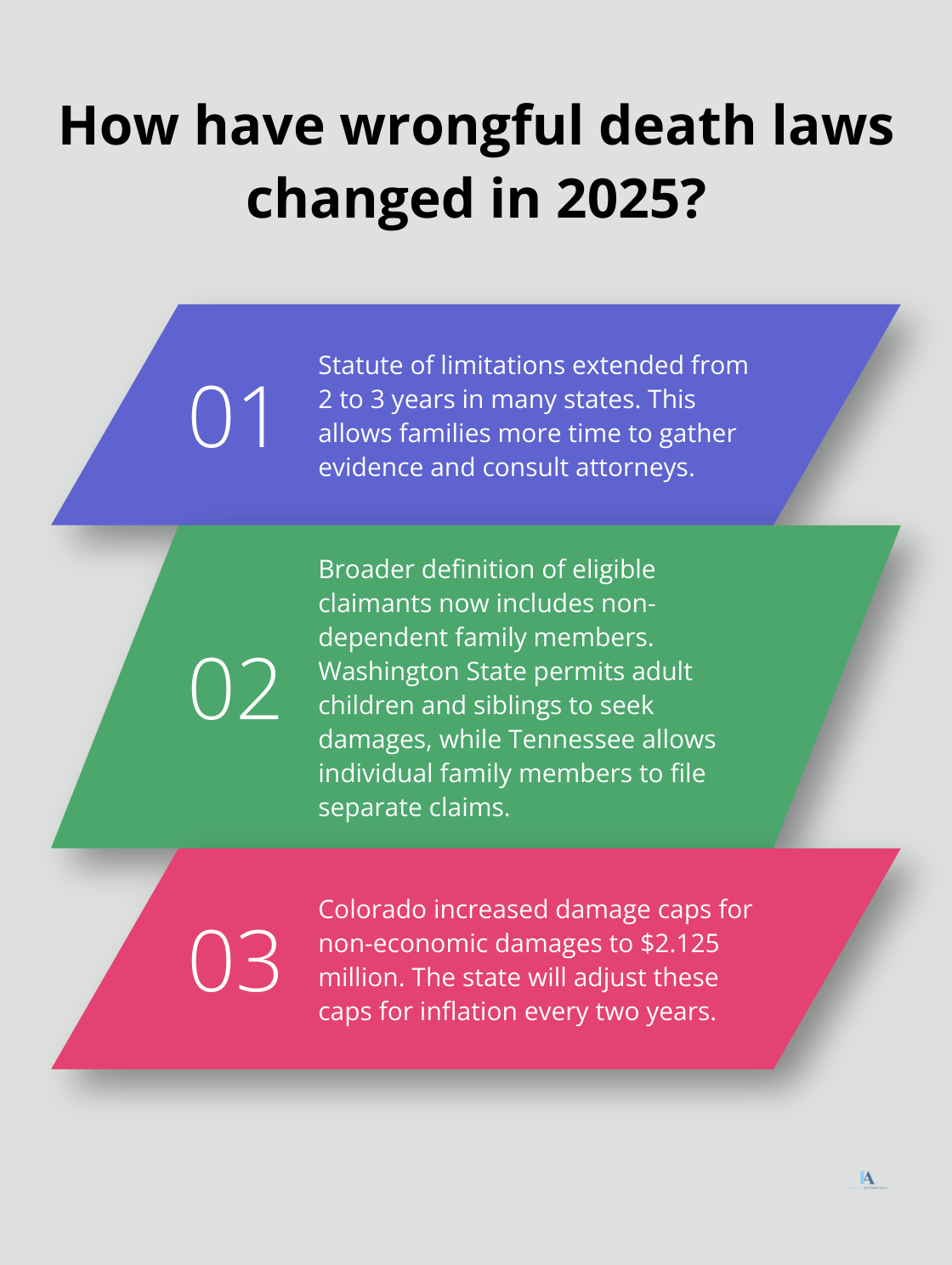
These updates generally benefit plaintiffs, but they also complicate the legal landscape. Each state has its own rules, which change rapidly. Working with experienced wrongful death attorneys who stay current on these changes has become more important than ever.
As we move forward, the impact of technology on wrongful death cases continues to grow. From AI-assisted liability determinations to advanced digital evidence collection, these technological advancements are reshaping how cases are built and presented.
How Technology Transforms Wrongful Death Cases
Technology revolutionizes wrongful death litigation in 2025. From AI-powered analysis to virtual courtrooms, these advancements reshape how attorneys build cases and present evidence.
AI-Powered Liability Assessment
Artificial intelligence now raises critical questions for product liability, including whether an AI-generated model or system falls under legal definitions. This analysis identifies patterns and potential causes of death that human investigators might overlook.
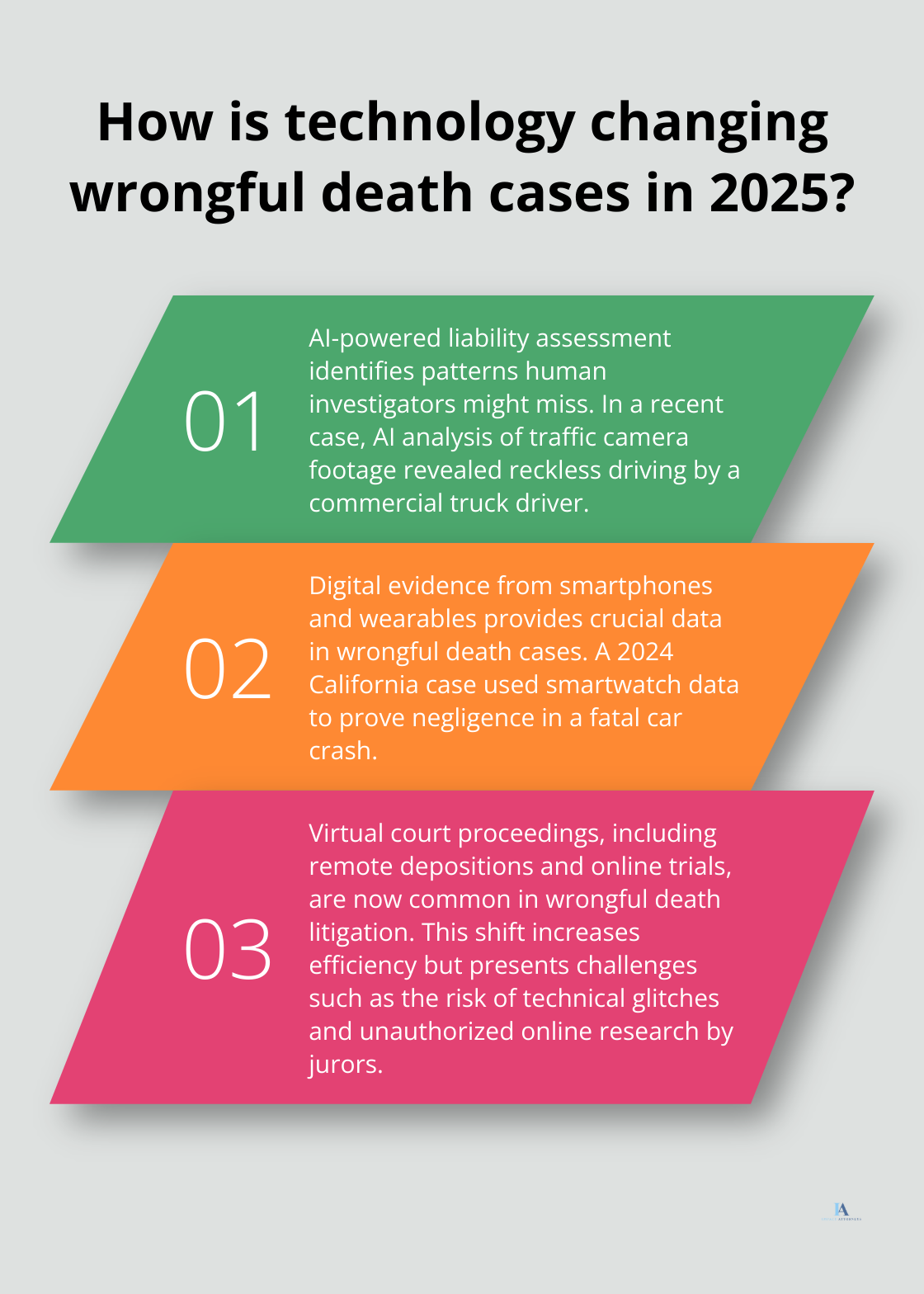
A recent case demonstrated AI’s power in liability assessment. Analysis of traffic camera footage revealed a pattern of reckless driving by a commercial truck driver. This evidence (which wasn’t immediately apparent to human observers) proved instrumental in securing a favorable settlement for the victim’s family.
However, AI isn’t infallible. Human oversight remains essential to ensure correct and ethical interpretation of AI-generated insights.
Advanced Digital Evidence Collection
The proliferation of digital devices revolutionizes evidence collection in wrongful death cases. Smartphones, fitness trackers, and smart home devices provide crucial data about a person’s location, activities, and even vital signs leading up to their death.
A 2024 California case highlighted the importance of digital evidence. Data from the victim’s smartwatch showed an abnormal heart rate spike just before a fatal car crash. This evidence proved that the at-fault driver caused a near-miss moments before the actual collision, establishing a pattern of negligence.
Attorneys must now master digital forensics and data privacy laws to effectively utilize this type of evidence. Specialized training ensures legal teams can leverage these technological advancements to benefit their clients.
Virtual Court Proceedings
The COVID-19 pandemic accelerated the adoption of virtual court proceedings, a trend that continues into 2025. Many wrongful death cases now involve remote depositions, virtual mediations, and even fully online trials.
This shift increases efficiency and reduces costs for many families. However, it also presents new challenges. Attorneys must now excel at presenting evidence and examining witnesses in a virtual environment. The risk of technical glitches or security breaches that could compromise proceedings also exists.
Unauthorized online research by jurors can disrupt the justice system in modern trials, presenting additional challenges in virtual court proceedings for wrongful death cases.
The Future of Wrongful Death Litigation
As technology evolves, its impact on wrongful death cases will only grow. Families seeking justice for their loved ones must stay informed about these changes. Working with attorneys at the forefront of technological adoption (such as Impact Attorneys) proves crucial for navigating this new landscape.
The next frontier in Los Angeles wrongful death law involves emerging trends in settlements and compensation. These developments promise to further reshape how victims’ families receive justice and financial support.
How Wrongful Death Settlements Change in 2025
Structured Settlements Become More Common
Structured settlements now dominate wrongful death cases in 2025. Instead of one-time lump sums, families receive regular payments over time. This approach offers several advantages:
- Financial stability: Regular payments help families manage long-term expenses more effectively.
- Tax benefits: Structured settlements often have favorable tax treatment compared to lump sum payouts.
- Customization: Payment schedules can be tailored to meet specific family needs (such as education costs or mortgage payments).
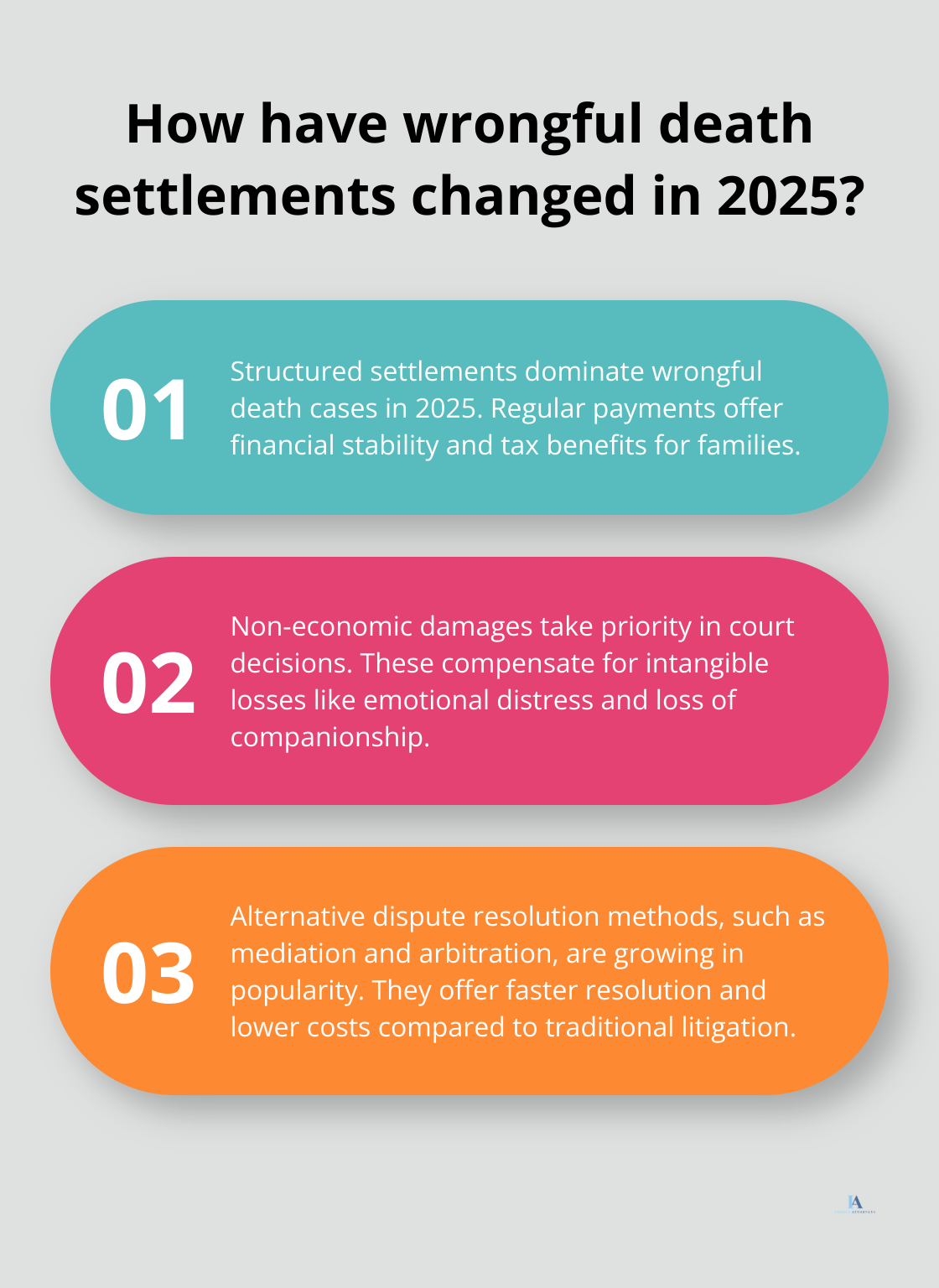
Structured settlements provide a steady income stream over a long period of time, which can be particularly beneficial in wrongful death cases.
Non-Economic Damages Take Priority
Courts now place greater emphasis on non-economic damages in wrongful death cases. These damages compensate for intangible losses such as emotional distress, loss of companionship, and loss of guidance.
It’s important to note that non-economic damages may be subject to caps in some states. For example, if a state has a $250,000 cap on non-economic damages, and a jury awards $500,000, the injured person will only receive $250,000.
Families should document non-economic losses thoroughly. This may include:
- Keeping a grief journal
- Collecting testimonials from friends and family
- Working with mental health professionals to assess emotional impact
Alternative Dispute Resolution Grows in Popularity
More wrongful death cases now resolve through alternative dispute resolution (ADR) methods, particularly mediation and arbitration. These approaches offer several benefits:
- Faster resolution: ADR typically concludes more quickly than traditional litigation.
- Lower costs: Avoiding a full trial can significantly reduce legal expenses.
- Privacy: ADR proceedings are generally confidential, protecting family privacy.
While ADR can be effective, it’s important to work with experienced attorneys who can protect your rights throughout the process. Impact Attorneys has extensive experience in both traditional litigation and ADR methods, allowing us to guide families towards the most appropriate resolution strategy for their unique situation.
Technology Influences Settlement Negotiations
Advanced data analytics and AI-powered tools now play a significant role in settlement negotiations. These technologies help attorneys and insurance companies assess case values more accurately, leading to fairer settlements.
For example, predictive analytics can estimate potential jury awards based on similar cases, helping both sides reach reasonable settlement figures. This technology-driven approach often results in faster resolutions and reduces the need for lengthy court battles.
Increased Focus on Long-Term Care Costs
Wrongful death settlements in 2025 increasingly account for long-term care costs of surviving family members. This trend recognizes the lasting impact of losing a primary caregiver or financial provider.
Settlements now often include provisions for:
- Ongoing therapy and counseling for surviving family members
- Educational expenses for children who have lost a parent
- Long-term financial planning and support services
This holistic approach to settlements aims to provide comprehensive support for families beyond immediate financial compensation.
Final Thoughts
Los Angeles wrongful death law in 2025 have changed significantly. Extended statutes of limitations and broader definitions of eligible claimants now benefit families seeking justice. New damage caps in states like Colorado offer increased compensation potential for those who have lost loved ones.
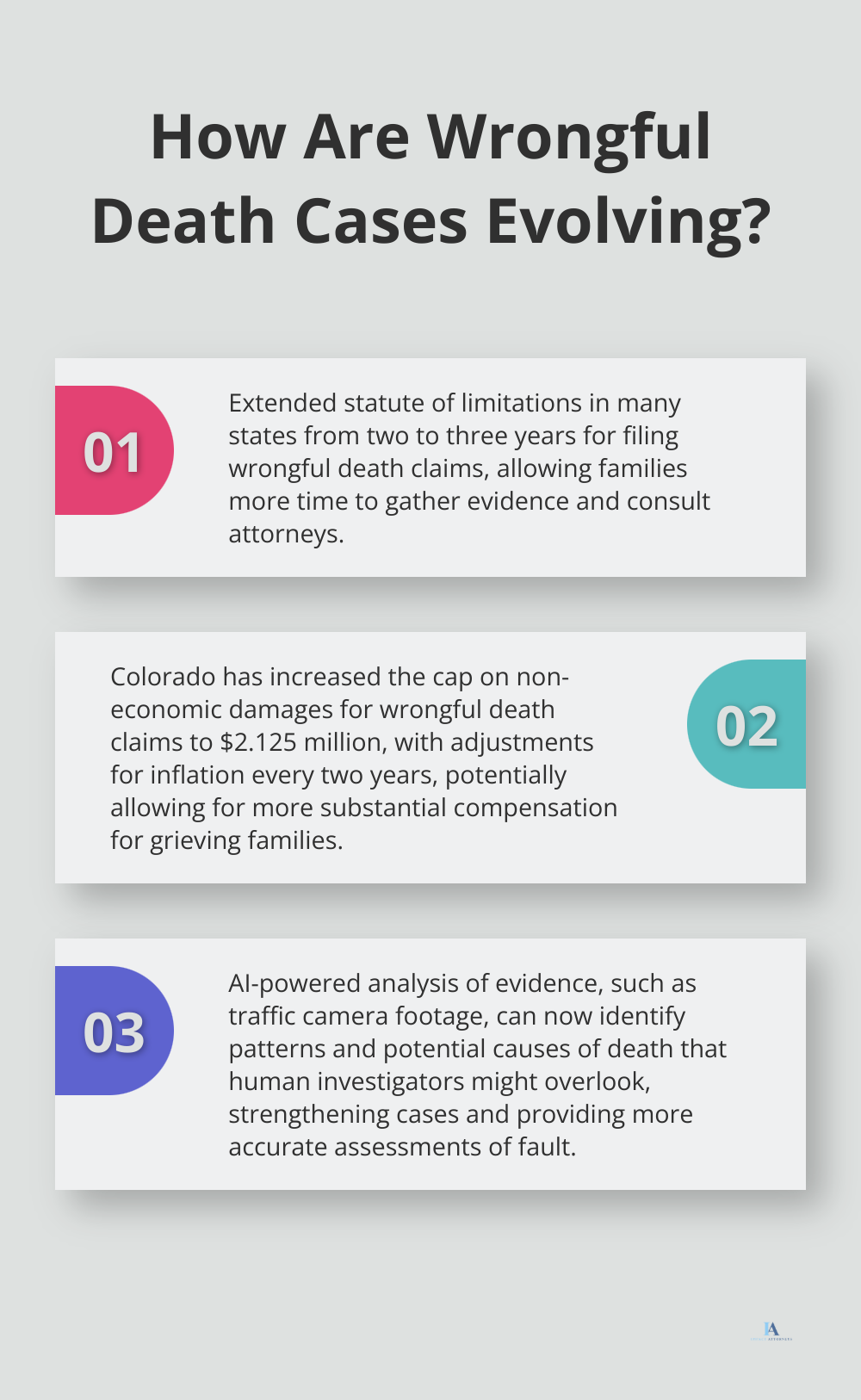
Technology has transformed wrongful death cases. AI-powered assessments, digital evidence collection, and virtual court proceedings have reshaped case handling. These innovations strengthen cases but require specialized expertise to navigate effectively.
Impact Attorneys specializes in wrongful death 2025 cases. Our team stays current with legal changes and technological advancements to provide effective representation. We offer personalized attention and support to guide families through these challenging times.

